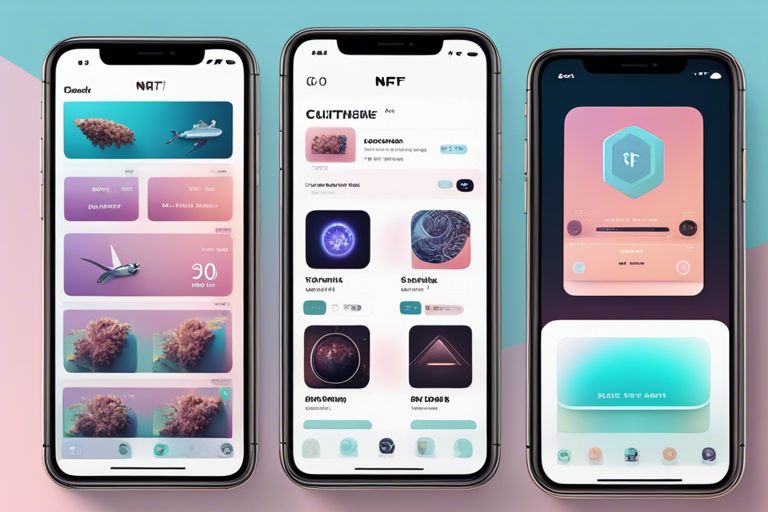Most are intrigued by the skyrocketing popularity of NFTs, and creating your own platform can be a lucrative opportunity. In this guide, we will explore the necessary steps and key considerations to help you successfully launch your own NFT platform. From understanding the technology behind NFTs to setting up a secure marketplace, we will cover everything you need to know to enter this exciting digital space.
Planning and Preparation
Understanding the NFT Market: Key Factors to Consider
A successful NFT platform launch requires a deep understanding of the NFT market. Key factors to consider include the current trends, demand for digital collectibles, popular NFT categories, and the target audience’s preferences. Researching existing NFT platforms and analyzing their success can provide valuable insights for your own platform. Perceiving market needs and gaps will help you tailor your platform to meet the demands of users.
Defining Your NFT Platform’s Niche and Target Audience
Consider your NFT platform’s niche carefully before launching. Identify the specific category or theme your platform will focus on to differentiate it from competitors. By targeting a niche audience, you can create a more personalized and engaging experience for users. Market research is crucial to understanding the preferences and interests of your target audience, allowing you to tailor your platform’s features and offerings to meet their specific needs.
Building Your NFT Platform
Choosing the Right Blockchain and Smart Contract
Some of the most critical decisions you will make when building your NFT platform revolve around selecting the appropriate blockchain and smart contract technology. Consider factors such as scalability, security, transaction speed, and community support when deciding on the blockchain that will power your NFT platform.
Designing a User-Friendly Interface and User Experience
Platform usability is crucial to attracting and retaining users on your NFT platform. Ensure that your platform offers an intuitive and aesthetically pleasing interface that makes it easy for users to mint, buy, and sell NFTs. Consider implementing features like filters, search functions, and a seamless checkout process to enhance the user experience.
Another important aspect is to prioritize security measures to protect users’ assets and personal information, creating trust and credibility in your platform.

Developing a Successful NFT Launch Strategy
Tips for Creating a Pre-Launch Hype and Building Anticipation
While launching your NFT platform, it’s crucial to create excitement and anticipation among your target audience. Consider hosting giveaways, collaborating with influencers, and teasing sneak peeks of your NFT collection to build hype.
- Utilize social media platforms for teasers and announcements
- Collaborate with prominent artists for exclusive collections
- Create a sense of exclusivity with limited edition NFT drops
Recognizing your audience’s preferences and interests will help you craft a compelling pre-launch strategy that generates buzz and excitement for your NFT platform.
How to Price Your NFTs Effectively and Avoid Common Mistakes
Building a successful NFT launch strategy involves pricing your digital assets correctly to attract buyers and maximize revenue. A common mistake is overpricing NFTs, which can deter potential collectors. Consider factors such as rarity, artist reputation, and current market trends when setting prices.
Post-Launch Maintenance and Growth
How to Monitor and Analyze Performance Metrics and KPIs
Keep a close eye on key performance indicators (KPIs) such as daily active users, transaction volume, user engagement, and retention rates. Utilize analytics tools to track these metrics and make data-driven decisions to optimize platform performance and user experience.
Strategies for Retaining Users and Encouraging Repeat Business
Users are the lifeblood of your NFT platform, so it’s crucial to implement strategies to retain them and encourage repeat business. Offer incentives such as loyalty programs, exclusive content, and discounts to keep users coming back. Engage with your community through social media, email marketing, and events to build a loyal customer base.
Final Words
To wrap up, launching your own NFT platform can be a challenging yet rewarding undertaking. By following the steps outlined in this ultimate guide, you can navigate the complex world of non-fungible tokens and create a successful platform. Remember to focus on building a strong community, offering unique and valuable NFTs, and implementing secure and reliable technology. With dedication, creativity, and perseverance, you can carve out your own space in this exciting and rapidly growing industry.
FAQ
Q: What is an NFT platform?
A: An NFT platform is a digital marketplace where users can create, buy, sell, and trade non-fungible tokens (NFTs).
Q: Why should I launch my own NFT platform?
A: Launching your own NFT platform can provide you with a unique opportunity to capitalize on the growing popularity of NFTs and create a marketplace for digital artists and collectors.
Q: What are the key features of a successful NFT platform?
A: Some key features of a successful NFT platform include user-friendly interface, secure payment system, minting capabilities, digital wallet integration, and smart contract functionality.
Q: How do I attract artists and collectors to my NFT platform?
A: To attract artists and collectors to your NFT platform, you can offer competitive transaction fees, host marketing campaigns, collaborate with well-known artists, and provide a seamless user experience.
Q: What are the legal considerations when launching an NFT platform?
A: When launching an NFT platform, it is important to consider intellectual property rights, copyright laws, terms of service agreements, and compliance with regulations such as AML and KYC.
Q: How can I monetize my NFT platform?
A: You can monetize your NFT platform through transaction fees, listing fees, premium features for users, partnerships with brands, and exclusive NFT drops.
Q: What are some popular platforms for creating NFTs?
A: Some popular platforms for creating NFTs include OpenSea, Rarible, Mintable, Foundation, and SuperRare.







